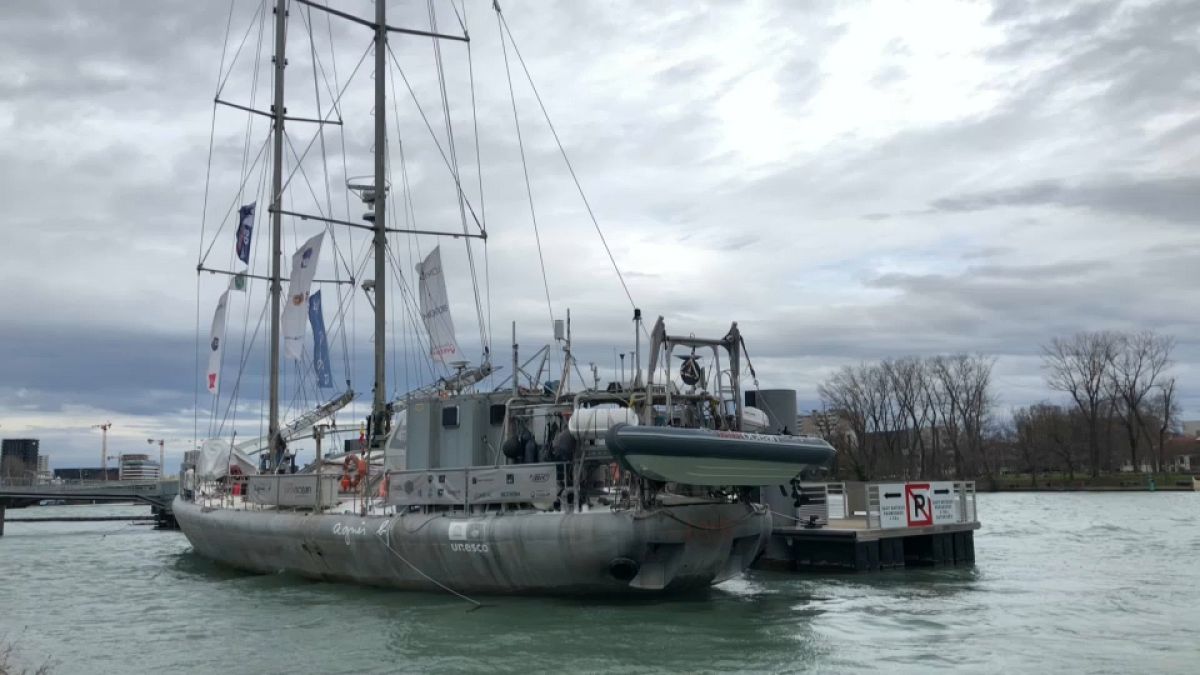Since April 2023, a team of scientists has been collecting data from around Europe's coastline on a mission which will run until July 2024.
The Tara Europa Boat may seem like your average sailing boat, but it is, in fact, a floating scientific laboratory.
"The aim of the Tara Europa Trek mission is to measure the impact of human activity on the coastline, which is a place of enormous biodiversity", explains Henri-Bernard Costa, Head of Public Affairs at the Tara Foundation.
Since April 2023, a team of scientists has been sailing around Europe's coastline, assessing pollution levels and the health of its waters.
Their goal is to cover a whopping 25,520 kilometres of coastline, with their mission reaching Athens in July.
Assessing the levels of pollution in Europe's waters is a pressing cause, given that 40% of Europe’s population lives in a coastal region.
"Pollution travels, chemical molecules do, too. There are no borders to pollution, we have to be aware that everything that impacts one part of nature, also affects it as a whole," states Costa.
"Our goal is to get a holistic vision of what is going on across the continent, in order to assess which issues must be prioritised to ensure the health of our oceans," he adds.
At the heart of the Tara lies a converted boat cabin, where its team of scientists stock their machinery. Although scientists have already collected a huge amount of data, it could take up to a decade before the findings of the expedition are made public.
Once collected, water samples are sent to other laboratories for examination, which is a lengthy process.
Scientists have already "tracked down some 4,000 chemicals, pesticide and pharmaceutical products that have been listed. They check whether they are already detectable on land and at sea, and analyse how they interact with micro-organisms", explains Martin Heraut, the captain of the Tara Europa Boat.
This is far from being the Foundation's first expedition though: since 2003, the organisation has already launched seven major scientific exploration missions.
